
Menu
Have you ever asked yourself the reason behind once impressively large corporations suddenly facing a massive decline, losing their market value while once minor businesses and companies suddenly start rising among the Giants of the market?
Have you ever wondered why some corporations can easily withstand the Socio-political and economic down winds while others falter and are unable to live on?
The answer lies in strategy and strategic management.


Strategic management enables companies to function more creatively and not to act objectively towards the future that may befall. This type of management will empower every company with the ability of taking the initiative in different arrays of situations and also will create performative influence which leads an operation to not only react to actions and situations, but to subjectively decide about the future. As a result of Strategy building, companies would better be able to foresee possible opportunities and have a better oversight on their market of choice, while being better able to prepare for possible future fluctuations. With the employment of a proper company strategy one can also assess the functional capabilities of a company among many other attributes.






In today’s cut-throat business world, having a strong marketing plan is crucial for success. However, creating and implementing an effective strategy requires experience, knowledge, and a thorough comprehension of market dynamics. This is where marketing strategy consulting can be extremely helpful. By partnering with seasoned consultants, businesses can gain valuable guidance and strategies to navigate the complexities of the market, achieve their goals, and stay ahead of the competition.
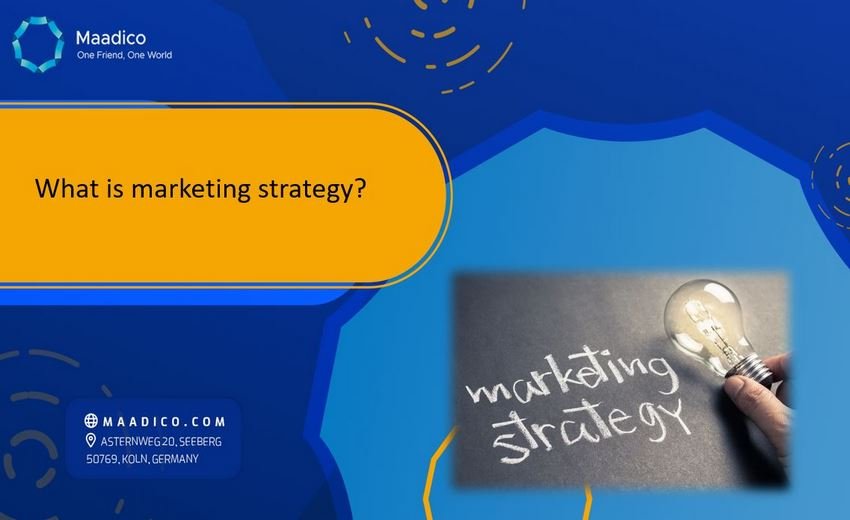
First, we need to know about marketing strategy definition. A marketing strategy is a comprehensive plan devised by a company or organization to promote its products or services and achieve its business goals. It encompasses a range of activities aimed at understanding the target market, positioning the brand effectively, and delivering value to customers while gaining a competitive advantage.
The foundation of marketing strategy consulting lies in thorough market research and analysis. This involves identifying target audiences, understanding their needs, preferences, and behaviors, and analyzing competitors and industry trends. With this information, companies can tailor their strategies to resonate with their target market and differentiate themselves from competitors.
Positioning, a pivotal element of marketing strategy, empowers companies to shape consumer perceptions of their brand. This involves crafting a unique value proposition that accentuates the benefits and advantages of the product or service over alternatives in the market.
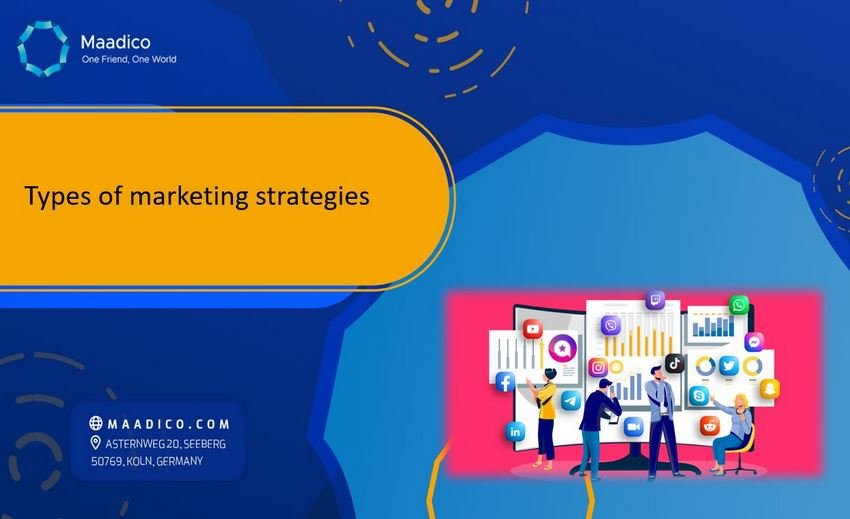
After answering the question of what marketing strategy is, you must familiarize yourself with the types of marketing strategy. The foundation of every thriving business lies in its marketing strategies. They encompass a range of techniques and approaches aimed at promoting products or services, attracting customers, and ultimately driving revenue. In today’s dynamic and competitive marketplace, businesses must employ various marketing strategies to stand out and thrive. From traditional methods to digital innovations, here are some key types of marketing strategies:
This strategy in marketing strategy consulting focuses on creating and distributing valuable, relevant, consistent content to attract and retain a clearly defined audience.
Content comes in diverse formats such as blog posts, videos, infographics, podcasts, and social media updates. By providing valuable information, businesses can establish themselves as thought leaders in their industry and build trust with potential customers
Social media platforms such as Facebook, Instagram, Twitter, and LinkedIn, with their billions of users worldwide, present vast opportunities for businesses to engage with their target audience. Social media marketing strategy consulting involves creating and sharing content on these platforms to increase brand awareness, engage with customers, and drive website traffic. It also allows targeted advertising based on demographics, interests, and behavior.
SEO organically optimizes a website to rank higher in search engine results pages (SERPs). Businesses can increase their visibility and attract more organic traffic by optimizing content, improving website structure, and acquiring backlinks from reputable sources. Ranking higher on search engines like Google can significantly boost brand exposure and credibility.
PPC advertising entails paying a fee every time someone clicks on your ad. Platforms like Google Ads and Bing Ads allow businesses to bid on keywords relevant to their products or services and display ads to users searching for those keywords. PPC ads appear at the top of search engine results pages and can provide immediate visibility and traffic to your website.
Despite the rise of social media and other digital channels, email marketing remains one of the most effective ways to reach and engage customers. Businesses can use email campaigns in marketing strategy consulting to promote products, share valuable content, nurture leads, and build customer relationships. Personalized and segmented email campaigns have higher open and click-through rates, leading to increased conversions and sales.
Influencer marketing entails collaborating with individuals who have a substantial and engaged following on social media to endorse your products or services.Influencers can range from celebrities and industry experts to micro-influencers with smaller but highly targeted audiences. By leveraging the trust and influence of these individuals, businesses can reach new audiences and drive sales.
Affiliate marketing is a performance-based strategy where businesses reward affiliates for driving traffic or sales to their website through referral links. Affiliates in marketing strategy consulting can include bloggers, influencers, or other companies that promote your products or services in exchange for a commission. This strategy can help businesses expand their reach and increase sales without upfront marketing costs.
Hosting or sponsoring events allows businesses to engage directly with their target audience in a more personal and immersive way. Events include trade shows, conferences, workshops, product launches, and community gatherings. Businesses can generate leads, build brand awareness, and foster customer loyalty by showcasing products, providing demonstrations, and networking with attendees.
Guerrilla marketing involves unconventional and low-cost tactics to create buzz and generate attention for a brand. This can include stunts, flash mobs, viral campaigns, or street art that captivate and surprise audiences. Guerrilla marketing relies on creativity and ingenuity to cut through the noise and make a memorable impression on potential customers.
Although acquiring new customers is essential, retaining existing ones is equally vital for long-term success. Customer retention strategies in marketing strategy consulting focus on providing exceptional customer service, fostering loyalty programs, soliciting feedback, and offering personalized experiences to keep customers returning for more.
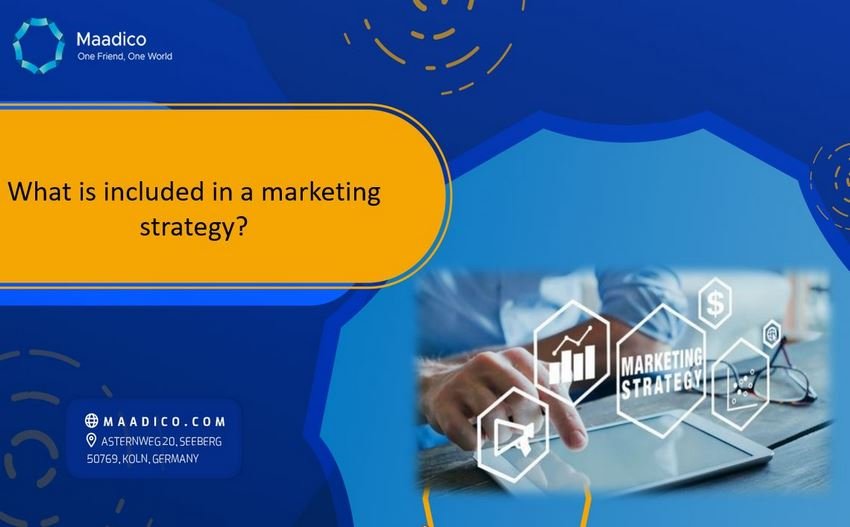
A marketing strategy consulting is a roadmap for achieving a company’s marketing objectives. It outlines the goals, target audience, key messages, tactics, and metrics for measuring success. A comprehensive marketing strategy encompasses several key components:
Before crafting a marketing strategy, conducting a thorough analysis of the market landscape is essential. This includes researching industry trends, analyzing competitors, identifying target demographics, and understanding consumer behavior. Market analysis in marketing strategy implementation provides valuable insights that inform strategic decision-making and help businesses position themselves effectively in the marketplace.
Understanding the target audience is fundamental to any online marketing strategy or offline. Businesses must define their ideal customers based on demographics, psychographics, behaviors, and preferences. By creating detailed buyer personas, companies can tailor their marketing efforts to resonate with the needs and interests of their target audience.
A USP sets a product or service apart from competitors and makes it appealing to customers. It answers the question, “Why should customers choose your brand over others?” A robust USP communicates the distinctive benefits and value proposition that set a brand apart and appeal to the target audience.
Clear and measurable marketing objectives provide direction and focus for the marketing strategy. Objectives should be specific, achievable, relevant, and time-bound (SMART). Common marketing objectives include increasing brand awareness, generating leads, driving sales, improving customer retention, and expanding market share
Positioning refers to the perception of a brand in the minds of consumers in comparison to its competitors. A positioning strategy articulates the brand’s unique value proposition and the benefits it delivers to customers. Effective positioning helps businesses carve out a distinct and favorable space in the market and influences purchasing decisions.
The marketing mix comprises four key elements—product, price, place, and promotion—that businesses can manipulate to influence consumer behavior and achieve marketing objectives. Product refers to the tangible or intangible offerings that satisfy customer needs. Price involves setting the right pricing strategy to maximize profitability while remaining competitive. Place focuses on distribution channels and making products available to customers where and when they want them. Promotion encompasses all the activities aimed at communicating the product or service’s value to the target audience, including advertising, public relations, sales promotions, and personal selling.
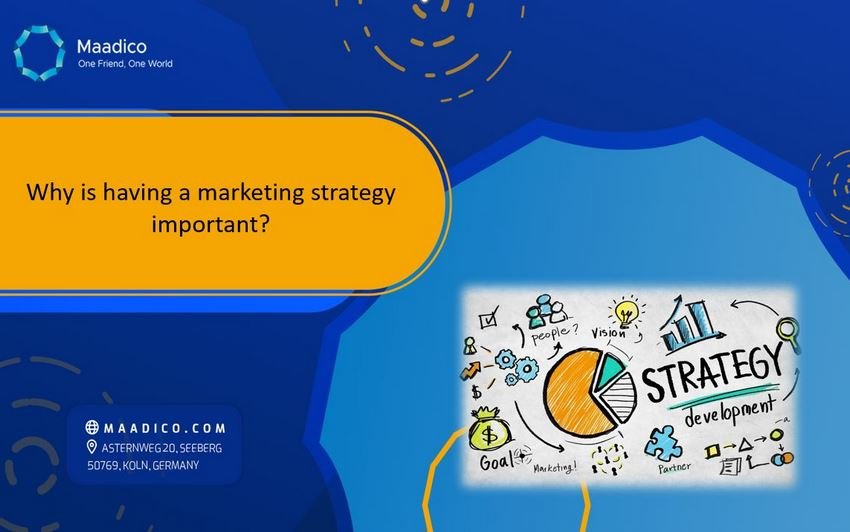
marketing strategy consulting is essential for any business, regardless of size or industry, because it serves as a roadmap for achieving organizational goals and objectives. Here’s why it’s so important:
A well-defined marketing strategy consulting provides a clear direction for the business by outlining specific objectives, target audiences, and tactics to achieve them. It helps align marketing efforts with the overall business goals, ensuring that resources are utilized effectively.
A marketing strategy consulting enables businesses to gain a deeper understanding of their target market, including customer needs, preferences, and behaviors, through market research and analysis. This knowledge is crucial for developing products or services that resonate with the target audience and creating compelling marketing messages that drive engagement and sales.
A carefully crafted consulting and sales is not just a roadmap, but a powerful weapon that allows businesses to differentiate themselves from competitors. It highlights its unique value proposition and strategic positioning in the market. By identifying and leveraging strengths, businesses can gain a competitive edge and attract customers who are looking for what sets them apart, empowering them to shape their market presence.
With a clear plan, businesses can allocate resources more efficiently, whether budget, time, or workforce. By focusing on marketing initiatives aligned with strategic objectives, companies can maximize the return on investment and minimize the wastage of resources on ineffective tactics.
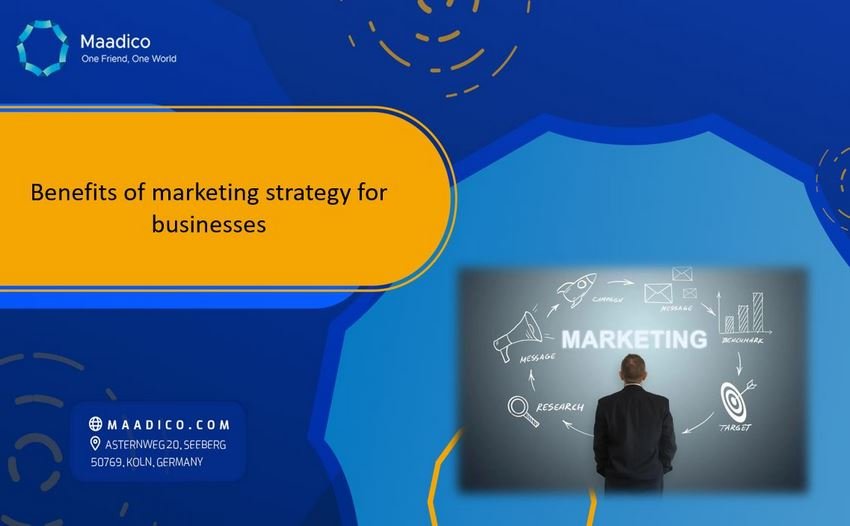
A strong marketing strategy is vital for businesses, offering a multitude of benefits:
It boosts visibility and brand awareness by effectively reaching target audiences through various social media and advertising channels. This heightened recognition translates into increased customer acquisition and retention, as businesses can better identify and engage their ideal customers, fostering long-term relationships through personalized messaging and loyalty programs.
A strategic approach helps businesses stand out in competitive markets by highlighting unique selling points and consistently delivering superior experiences, driving revenue growth and profitability.
Data-driven decision-making is the key to ensuring that marketing efforts are optimized for maximum impact. This approach reassures businesses that their resources are being allocated efficiently, leading to better results. A well-executed marketing strategy empowers businesses to thrive and grow in today’s dynamic marketplace.
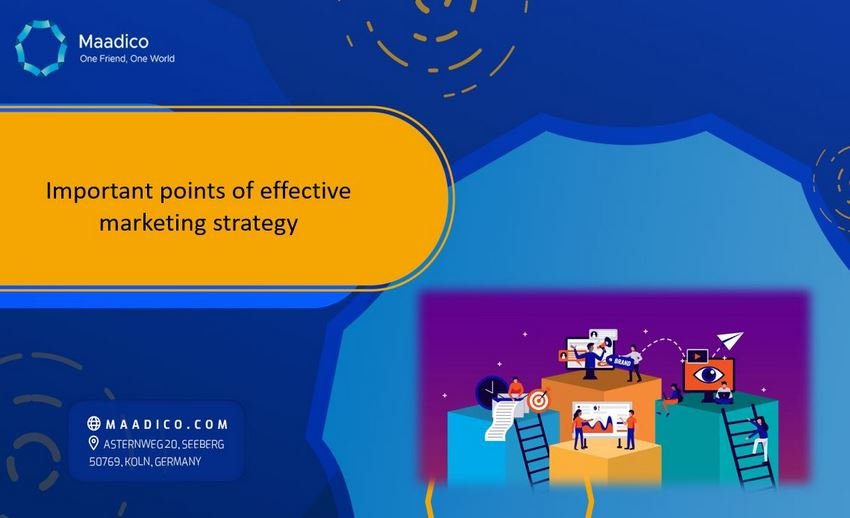
Effective marketing strategy consulting entails thoroughly understanding the target audience, identifying their needs and preferences, and crafting messages that resonate with them. It also entails leveraging various marketing channels to reach the audience effectively and measuring the success of marketing efforts through data analysis.
Maadico stands out as one of the premier companies for marketing strategy consulting due to its comprehensive approach and track record of success. With a team of seasoned experts, Maadico excels in understanding client objectives and tailoring strategies to achieve maximum impact. Here are some key reasons why Maadico is a top choice for businesses seeking to enhance their marketing strategy consulting:
Maadico’s consultants possess deep industry knowledge and expertise, allowing them to provide strategic insights that drive results. By conducting thorough market research and analysis, Maadico helps businesses identify growth opportunities and develop strategies that capitalize on market trends
Maadico acknowledges the uniqueness of every business and, therefore, offers tailored solutions to meet each client’s specific needs and goals. Whether it’s about launching a new product, venturing into a new market, or rebranding an existing offering, Maadico crafts strategies that align with the client’s vision and objectives, making them feel understood and valued.
Maadico adopts a comprehensive approach to marketing strategy, integrating a blend of traditional and digital marketing tactics to ensure maximum reach and engagement. From social media marketing and content creation to SEO and email campaigns, Maadico harnesses a diverse range of channels to connect with target audiences effectively, providing the audience with a sense of comprehensive marketing coverage.
Maadico is an international consulting company in Cologne, Germany. This company provides services in different areas for firms so they will be able to interact with each other. But specifically, raising the level of knowledge and technology in various companies and assisting their presence in European markets is an aim for which Maadico has developed … (Read more)